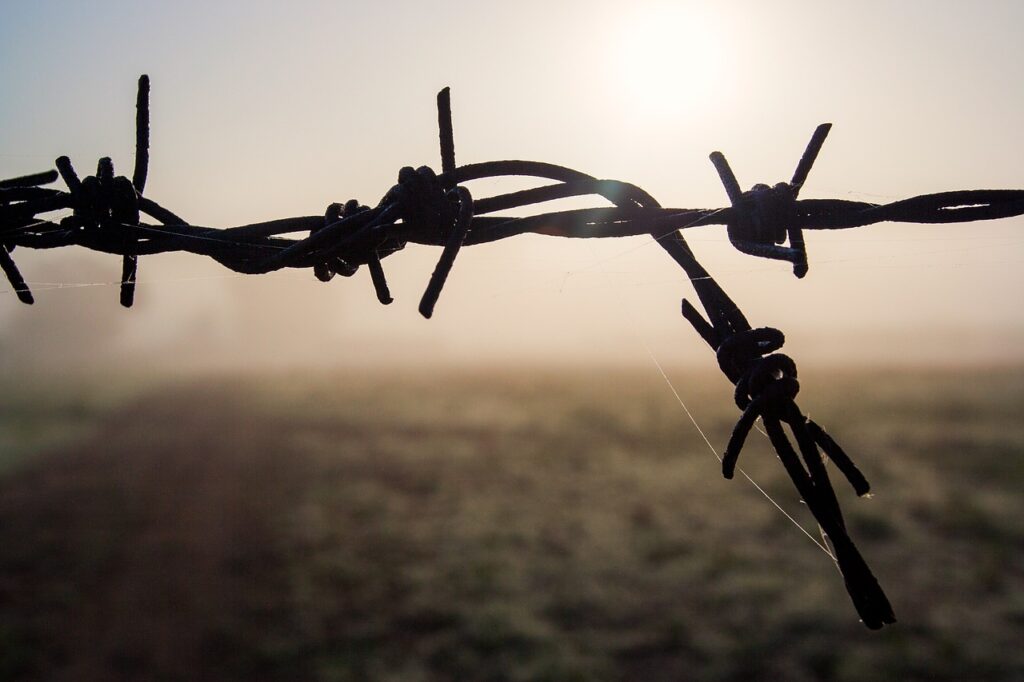
This year, for the 15th time, we celebrate the European Day of Remembrance for the Victims of Stalinism and Nazism established by the European Parliament on 23 August. It is sad to say that neither Russia nor Germany made amends for all the evil done during and after World War II, which was unprecedented in earlier history.
On August 23, 1939, a non-aggression pact was concluded between the German Third Reich and the Union of Soviet Socialist Republics, also known as the Molotov-Ribbentrop Pact (after the names of the foreign ministers of both countries, Joachim von Ribbentrop and Wiacheslav Molotov). The most important element of this pact was a secret protocol in which both totalitarian systems divided their spheres of influence in Central and Eastern Europe. The USSR was to fall to Finland, Latvia and Estonia, and the Third Reich to Lithuania. In terms of the partition of Polish lands, the border was set on the line of the Narew, Vistula and San rivers. In addition, the Soviet side reported its interest in Bessarabia, which belonged to Romania.
The implementation of these arrangements began on September 1, 1939 with the German invasion on Poland. On September 17, Soviet Russian troops entered our country from the east. On September 28, 1939, the Third Reich and the USSR concluded a treaty on friendship and borders, also known as the Second Molotov-Ribbentrop Pact. It then corrected the August arrangements: e.g. Lithuania entered the sphere of Soviet influence, and the German-Soviet border in Poland was moved from the Vistula to the Bug River. The Baltic republics were brutally and illegally annexed by the USSR in 1940, and Bessarabia was taken over by the Soviets from Romania, with the consent of the Third Reich. Only Finland managed to avoid a similar fate, thanks to the successes in the so-called “Winter War” with the Soviets, but at the cost of territorial losses.
The cooperation of the Third Reich and the USSR brought to Poland the death of over 6 million citizens, brutally tortured and murdered by both occupiers, and material losses, which can now be counted in many billions of zlotys. It also meant several decades of Soviet occupation, which went down in history as the Polish People’s Republic, during which political murders and plunder of Polish goods were carried out on a massive scale. Both aggressors also plundered Polish culture and art, which they have not returned so far and, according to the official positions of both countries, they do not intend to return.
It is worth recalling at this point that the Molotov-Ribbentrop Pact was the aftermath of the agreement concluded between Germany and Soviet Russia in Rapallo on April 16, 1922. The cooperation initiated at that time set the direction of the foreign policy of both countries, which was interrupted only for a moment by the events of the end of World War II, when Russia sided with the Allies. The spirit of Rapallo returned after 1945 in the form of economic cooperation between the two countries, mainly in the form of gas transmission from Russia to Germany, and continued after the fall of the Berlin Wall and the USSR. The construction of Nord Stream 1, and then Nord Stream 2, and the passivity of the authorities in Berlin in the face of Russia’s aggression against Ukraine brought back the worst demons of the past. Anyway, some Polish politicians openly said that NS2 is a modern Ribbentrop-Molotov pact.
In this context, it is particularly worrying that neither Germany nor Russia want to make amends for the harm done to Poles and Poland. In the case of Russia, we are dealing with aggressive rhetoric, which is not surprising given the attitude of the Kagiebian clique ruling it towards our country. However, the empty rhetoric of Germany, in the absence of deeper reflection and inclinations to cooperate with Putin’s Russia, is shocking insofar as this country is a member of both NATO and the European Union. It would seem, therefore, that it should be a civilized country, guided by values and rules taken directly from the Christian heritage of our continent. Meanwhile, this is not happening.
The main problem for Germany – and for the EU as a whole – is that it has never repented of its crimes. There was no process that could be called Nazism liberation therapy – a psychological process of the entire German nation, which consisted of humbly admitting to the wrong done and then compensating the victims of this wrong and their families for the harm done. The contemporary aggression of the German state results precisely from the lack of such therapy. This is a very bad omen for both Poland and other European Union countries, which should finally be called by its name in the public space. The payment of reparations to Poland is necessary for Germany to actually settle accounts with the past and cut off from the atrocities committed in the 20th century. Otherwise, they will continue to be tainted with the mentality of Nazism, especially since after the war the democratic German elites largely came from the NSDAP.
August 23, the Day of Victims of Totalitarianism, is a good time for the international community to call on both Russia and Germany to come to their senses. Robert Schuman, long before German reunification, wrote: “The real German problem is this: Will Germany agree to be a peace partner or will it remain a more or less latent threat? Will we not hear in the future that only Germany can keep order on our troubled continent?”. The condition sine qua non for the Germans to be a peaceful partner is their honest settlement with the past. Otherwise, the spirit of Rapallo will continue to hover over the European Union.
Anna Wiejak
